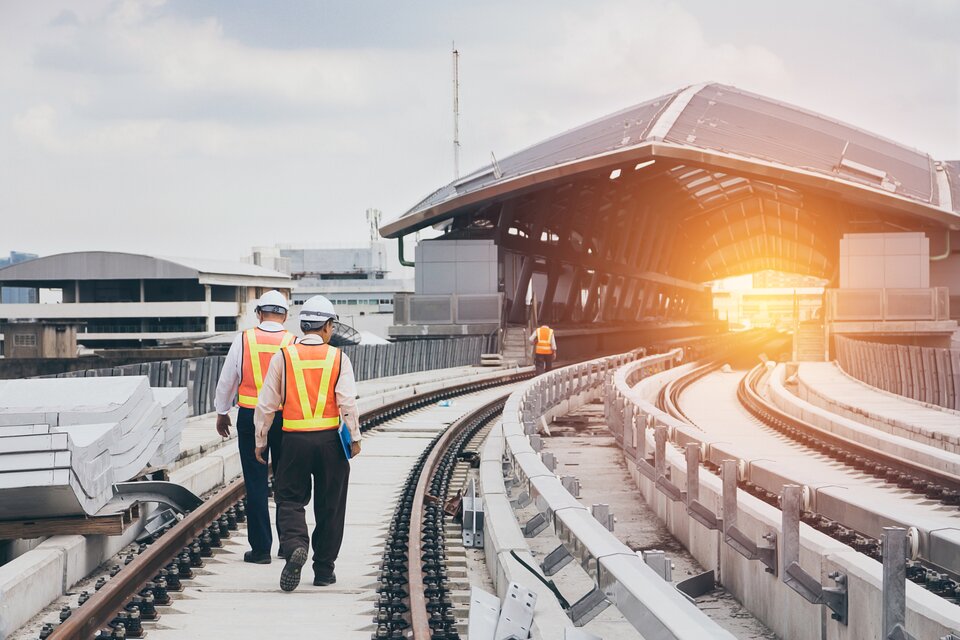Strona 1
Railway traffic control automation technician

The rapid development of railway networks in recent years has opened up a number of new job opportunities for those who are professionally involved in railroad transport. Railway traffic control and signalling automation technicians are currently in high demand. This profession provides a possibility to find a well‑paid and stimulating job both in Poland and abroad. However, it requires constant improvement of one’s skills.
A railway traffic control and signalling automation technician is mostly responsible for the work related to mounting, repairing and maintaining signalling devices as well as diagnosing any faults. This includes all the wired and wireless communication equipment. A qualified specialist can prevent the devices from breaking down and repair what’s been damaged. Moreover, they should posses broad knowledge of mounting and operating equipment used to ensure safe traffic on a level crossing. A well‑trained automation technician is able to analyse signalling circuits and draw up both operational and technical documentation.
Skills and competence acquired during the training can later be used at such workplaces as the companies managing railroad infrastructure, plants that produce or design signalling devices and those that handle railroad traffic control equipment construction, repair and maintenance. Typical job positions in the industry include an overhead contact line technician, an assistant train master, a station master, a train dispatcher, a railroad signalling equipment technician and a control and signalling equipment automation technician.
A well‑qualified specialist is diligent, conscientious, careful and perceptive. Due to the distinctive nature of the job, good time and work organisation, resistance to stress and fatigue, and availability are very important qualities. The fact that the railroad industry has been rapidly developing over the recent years makes openness to innovative technologies, willingness to self improve, and well‑developed spatial, structural and technical imagination desirable qualities in an automation technician.
Railway power engineering technician

Railroad transport provides carriage of people by means of transport that run on railway tracks or rails. Apart from trains, these include trams and the underground. The vast majority of these vehicles are powered by electric engines that need electrical energy which is delivered and distributed with the overhead contact line. Mounting and operating of such a network and sidetrack auxiliaries is handled by a railroad transport electrical energy technician. Their professional duties involve repairing the vehicles, as well as drawing up operational and technical documentation of those vehicles and the entire overhead contact network.
A well‑qualified railroad transport electrical energy technician will find employment in facilities that manage the rolling stock business, in tramway or underground depots, as well as production plants where rolling stock and electrical energy‑related infrastructure is manufactured. A specialist can also find an interesting job at scientific research facilities that are oriented towards exploring issues connected with electrical energy and railroad transport.
A person who wishes to become a specialist in this branch of industry should have good eye‑hand coordination, an analytical mind, technical skills, attention span, patience and good time organisation. An electrical energy technician is expected to constantly improve their skills and broaden their knowledge. This is mostly because technical diagnostics of railroad vehicles is largely based on microprocessor technology. An electrical energy technician must possess basic knowledge of such disciplines as hydraulics, electricity, electronics or electrical energy. Current railroad vehicles are more and more technologically advanced and equipped with a far greater number of electrical devices than they used to be. These are, for example, electric mirrors or ticket punchers.
The nature of the job depends mostly on what particular specialists are occupied with. It usually takes place in a service pit or at the top of the vehicles. A specialist can also work at electrical switching stations, in facilities where control, measurement and transmission instruments are kept or outside in the open.